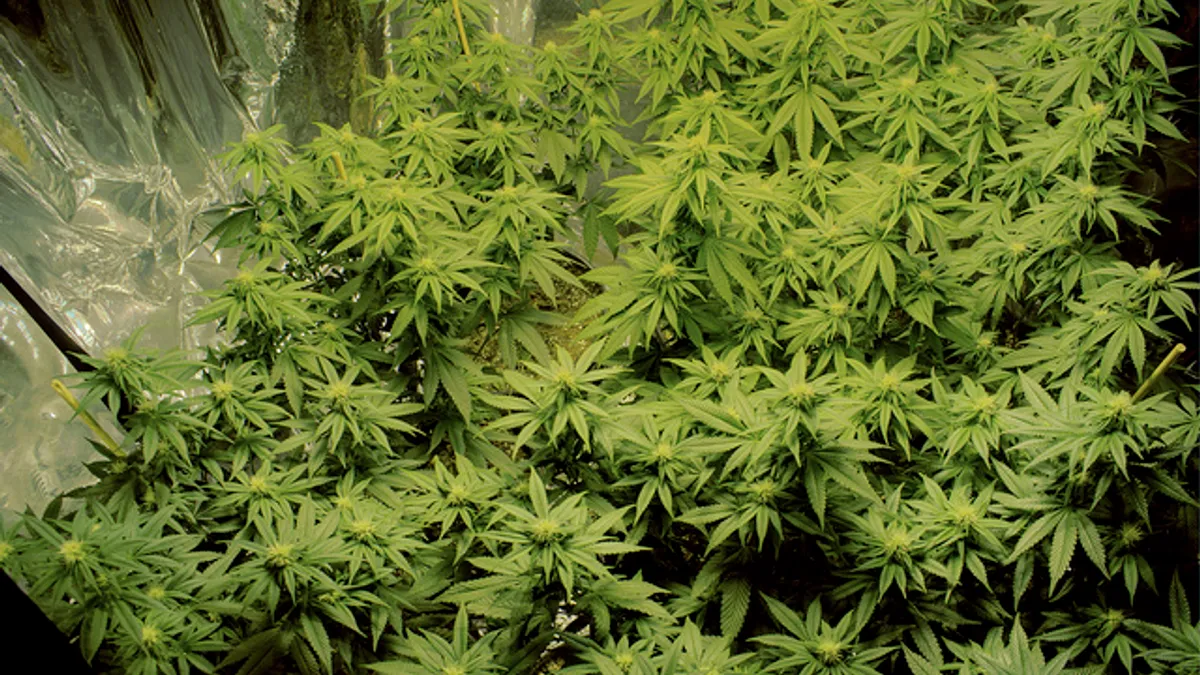Dive Brief:
- Boulder County, Colo., will charge marijuana growers an additional 2.16 cents/kWh for power in an effort to help offset contributions to greenhouse gas emissions related to legal pot operations.
- Growing marijuana requires an enormous amount of power, with operations requiring about 360 kWh per 25 square feet of space. Because of the large power requirements, some say renewable energy will not be sufficient to serve the growth.
- Observers believe Pacific Northwest growers could use as much power as a small city in the next 20 years, unless they switch to more efficient LED lights, according to USA Today.
Dive Insight:
There are 23 states with legalized medical marijuana and another three plus Washington, D.C., have made it legal for recreational users as well. With demand on the rise, the industry is using incredible amounts of electricity and the heavy system drain makes renewable energy an unlikely source. An operation with 20 to 25 plants will use almost as much power as 30 refrigerators, by some estimates.
Research by the Northwest Power and Conservation Council estimated 1 kilogram of pot required 5,000 kWh of power to produce.
USA Today, however, reports on a plan by Boulder officials to charge growers an additional electricity fee—amounting to about $100 extra per kilo of final product. At least initially, the money raised will go to help advise the grow operations on how to be more efficient, perhaps by installing LED lights that use significantly less power.
Correction: An earlier version of this article incorrectly stated that the City of Boulder levied an additional charge on marijuana growers. It is, in fact, Boulder County that enacted the extra charge.














